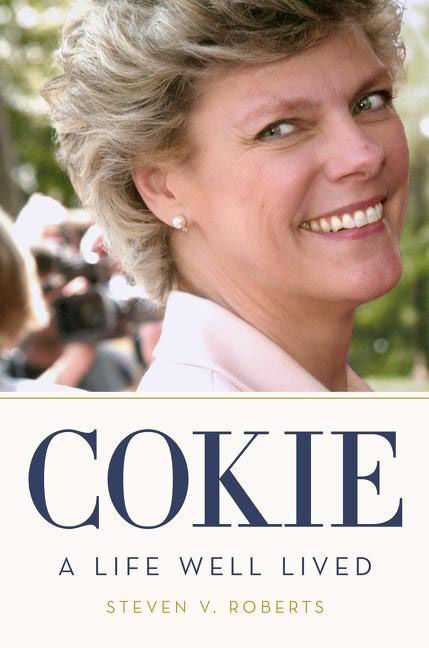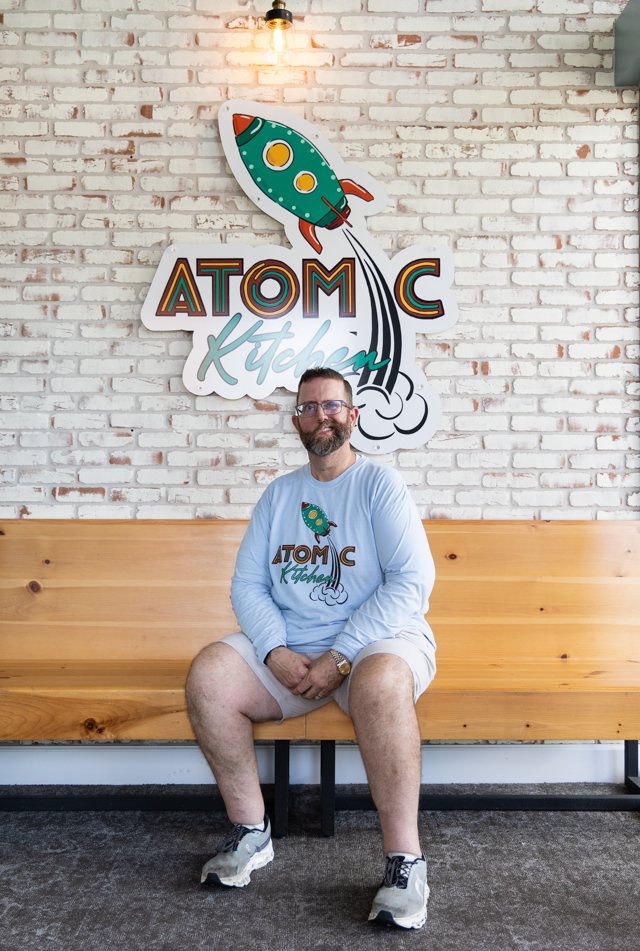Book review: ‘Cokie’
Published 12:00 am Sunday, November 28, 2021

- BOOK REVIEW
“Cokie: A Life Well Lived” by Steven V. Roberts. Harper. 251 pp. $27.99. Review provided by The Washington Post.
Soon after my husband, Sherrod Brown, won his 2006 race for the U.S. Senate, many of my fellow journalists, all of them men, wondered out loud if I should keep my job as a newspaper columnist.
Why wouldn’t I? My opinions were still my own.
Sherrod was a congressman when I married him in 2004. By the time he announced his Senate candidacy in 2005, I had won numerous journalism awards as a columnist, including the Pulitzer Prize. I thought this recognition would insulate me from premature obituaries of my career after his election. I was woefully naive. As one national reporter put it to me, referring to my awards, “Nobody cared who you were back then.” From his perspective, Sherrod’s heightened stature had all but erased mine and rendered me unworthy of a job in journalism.
Fortunately, as an NPR addict, I knew of one woman in somewhat similar circumstances – and she was a trailblazer.
Cokie Roberts was born into politics in 1943. Her father, Hale Boggs, was a longtime Democratic congressman who was presumed dead after the twin-engine Cessna he was aboard disappeared in 1972 in Alaska in poor weather. Her mother, Lindy Boggs, was then elected to his seat and served for nearly two decades.
Cokie Roberts didn’t join the family business, but she had absorbed it: She brought her understanding of politics to her journalism. As Steven Roberts makes clear in his new book of remembrances, “Cokie: A Life Well-Lived,” her upbringing, combined with her self-reliance, was her superpower as a Washington journalist.
“Many obituaries referred to her as the ultimate ‘Washington insider,’ even as ‘Washington royalty,’ but her professional success flowed from her own tenacity and talent, not family connections,” he writes, two years after her death. “She wasn’t a full-time journalist until she was 34 years old, but she made up for lost time, crashing through glass ceilings at NPR and ABC with her impressive mind, impish wit and infectious laugh.”
Knowing of Cokie’s “late” entry into full-time journalism emboldened me when I joined the Plain Dealer in Cleveland at age 36 after years of freelancing. Unlike Cokie, however, journalism was all I’d ever wanted to do. She became one by accident, Roberts writes, “mainly because she married one.” Roberts is a longtime journalist who has worked at the New York Times and elsewhere.
Throughout his book, Roberts relies heavily on Cokie’s recorded and published words, many of which are known to friends and fans. They are encouraging and enlightening. For example, I could never tire of hearing what she discovered about herself in those early, hard years of marriage:
“I learned that I need the company of other women. I learned that I perform much better with the discipline of a schedule. And I learned that I derive tremendous satisfaction from my work. I’m not particularly proud of those revelations. I think a more creative and self-contained person would do better on her own. But I’m awfully glad I found out about myself when I did.”
It was her husband who first thought to pitch Cokie to NPR, which had been on the air for six years when he reached out to Supreme Court reporter Nina Totenberg. She immediately asked for Cokie’s résumé. “It was the first time I ever saw the old girls’ network in action,” he writes, “with women helping one another in the way men had always done.”
Cokie always had her critics who accused her of trying too hard to hide her Democratic roots. But I appreciated her understanding of the political process. She refused to treat politics as pure folly and all politicians as punchlines. She and I acquired our political sensibilities from our parents in different ways. While she roamed the halls of Congress as a child, I grew up in a union home, raised to understand that only with the help of (some) politicians can workers’ aspirations become laws that protect them.
From her own background, Cokie knew the backstory of congressional lives, which kept her from becoming cynical. “I do think I am more concerned about their privacy,” she told “Fresh Air” on NPR, “but I also just see them much more as human beings, as people with all the flaws and foibles and families of a human being.” Roberts quotes her as readily conceding to the Boston Globe that she had “a much more positive attitude about politics and politicians than most reporters. They are not a bunch of crooks. They have good homes and some rowdy children. I was one of them.”
This does not mean she gave all politicians a pass. She seared male reporters for their tendency to overlook philandering and sexist candidates, and championed women who weren’t afraid to cover those faults.
“For years and years and years, it was all guys and they’d go rollicking off covering campaigns and having a wonderful time,” she once said. “And nobody would ever report what was really going on because they’d all get in trouble with their bosses and their wives. So then women started showing up on the campaign trail and we actually thought that it was significant how a candidate treated women. So we would report on it. … If you’re running for president, the way you treat women and your attitudes toward women is political. So we started reporting on it and we did change the way that candidates were assessed.”
Roberts insists that his wife was not one of the “militant sisters” who, and he quotes Cokie here, “engage in finger-pointing at women who make different choices than they do.” It’s true that she pushed Roberts to marry her and couldn’t wait to have children. They wrote two books together about marriage.
But Cokie was also a lifelong advocate for women, in the workplace and in their personal lives. Fortunately, this book is full of those kinds of stories, with Cokie at the heart of it all. It is heartening to read such a celebration of women helping women. Certainly, this has been true of my career, and in the tradition of Cokie Roberts, I want to name them.
After years of hearing male editors tell me I didn’t have it in me to be a columnist, two female editors – Ellen Stein Burbach and Elizabeth McIntyre – helped me prove them wrong.
Last year, I became a columnist for USA Today because of two other women: Kristen DelGuzzi, who recruited me, and her boss, Nicole Carroll, who hired me. In an early conversation with DelGuzzi, I mentioned my marriage, just in case.
She interrupted with force. “I’ve been reading you for 20 years. I know who you are, and I trust you.”
Cokie would have loved that, I think. She helped pave the way for women like me, I will never doubt.
– Reviewed by Connie Schultz, who is a columnist and the author, most recently, of the novel “The Daughters of Erietown.”






